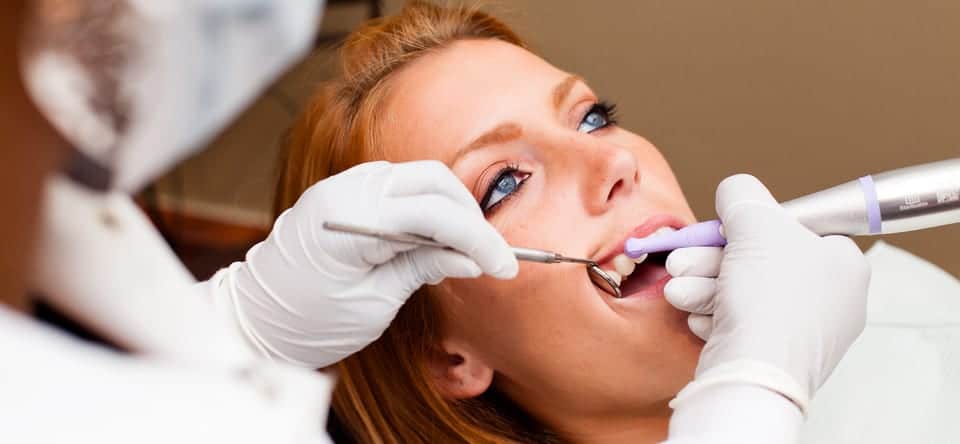|
While brushing, have you ever noticed a bit of blood on your toothbrush and wondered about the cause? Everyone’s gums bleed at some point in their lives for a variety of reasons, but the sight of a little red while you brush can still be unnerving. Gums, or gingiva, are the pink tissue that cover your jawbone and hold your teeth in place. Healthy gums are firm, taut and surround each tooth. Of course, there are multiple reasons why your gums may start leaking red, and none of them are comfortable. To help make sure your gums are as healthy as possible, we’re going to list five of the leading reasons why gums bleed and what you can do to remedy the situation. First, we’ll talk about the most common cause of bloody gums, but luckily, it’s the easiest to fix! 1- Poor oral hygiene1- The leading cause for bleeding gums is poor oral hygiene. Your cleaning regimen needs to include more than just brushing, as brushing alone won’t remove all the plaque, tartar and calculus that accumulates on your teeth at the gum line. Flossing daily isn’t an option, but a necessity. Keeping your mouth and teeth clean and disease-free is not a one size fits all protocol. Brushing at least twice a day is a must for everyone, but if your gums have recently started bleeding, try brushing after every meal. Your gum health will likely improve, and you’ll probably see difference in how often your gums bleed. 2- GingivitisSounds complicated, but it just means that your gums are inflamed. However, if it’s not taken care of, gingivitis can become a serious issue. It’s a chronic condition caused by the long-term effects of plaque — a sticky material made of bacteria, mucus and food debris — and tartar (what plaque becomes when it hardens) build up. Most of us have some degree of gingivitis from time to time, but consistent dental care can turn it around. Plaque can be easily removed with brushing and flossing, but tartar requires a trip to the dentist, where specialized ultra-sonic cleaning equipment will be used to break it off and allow the gums to heal. 3- PregnancyRegardless what you do, your gums may seem to be bleed more when you’re expecting. It’s called pregnancy gingivitis, and it’s caused by fluctuations in your hormone levels, which increase blood flow to your gums and other tissues. Pregnancy hormones also affect the body’s normal response to bacteria, leaving you more susceptible to periodontal infections. So what’s a girl to do when faced with pregnancy gingivitis? First, see your dentist for an additional cleaning, and discuss any problems you might have. You also may want to consult with your OBGYN. Next, switch to a softer toothbrush, brush at least twice a day, and floss at least once a day. This won’t avoid the problem altogether, but a bit of TLC with your gums during pregnancy will go a long way! 4- Periodontal diseasePeriodontal disease occurs when gingivitis is left untreated. While gingivitis is restricted to the gums, periodontal disease spreads into the tissue and bone that support the teeth. Instead of having gums that bleed from time to time, periodontal disease causes gum tissue to always be raw and have the appearance of pulling away from your teeth. In developed cases, you may notice pus in between your teeth and around your gums. If left untreated, periodontal disease can spread to the point where you could lose some — or even all — of your teeth. To avoid this scenario, practice good oral hygiene, eat a balanced diet and don’t smoke or chew tobacco. Even with proper daily dental care, using tobacco can put you at increased risk of gingivitis and periodontal disease. 5- Bleeding disordersBleeding gums can be the first sign of something more serious. This can be diagnosed by eliminating the other causes of bleeding. If all local causes of bleeding gums are taken care of, but you are still bleeding, especially if it is associated with other symptoms like nose bleeds, talk to us, we may refer you to a specialist. ConclusionWhatever the reason for your bleeding gums, it’s important to get to the root cause of the problem. Yes, it could be a symptom of a more serious underlying issue, but no matter what, it’s uncomfortable and needs to be taken care of. Make an appointment to see us as soon as you start seeing red.
0 Comments
|
AuthorArticles are written by Dr M Hajarat. Archives
July 2024
|
|
Niagara Park Dental
3 / 16 Washington Avenue Niagara Park, NSW 2250 Email: [email protected] Phone: (02) 4329 3003 |
HOURS
Mon 9:00 - 5:30 Tue 9:00 - 5:30 Wed 9:00 - 5:30 Thu 9:00 - 5:30 Fri 9:00 - 5:30 |
|






